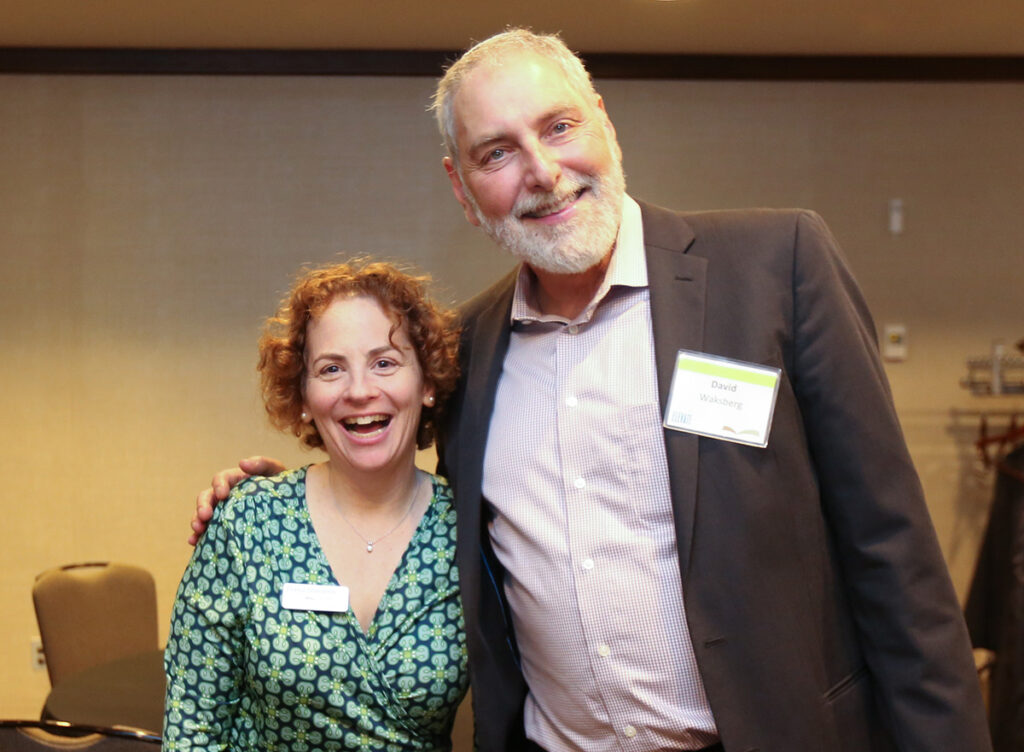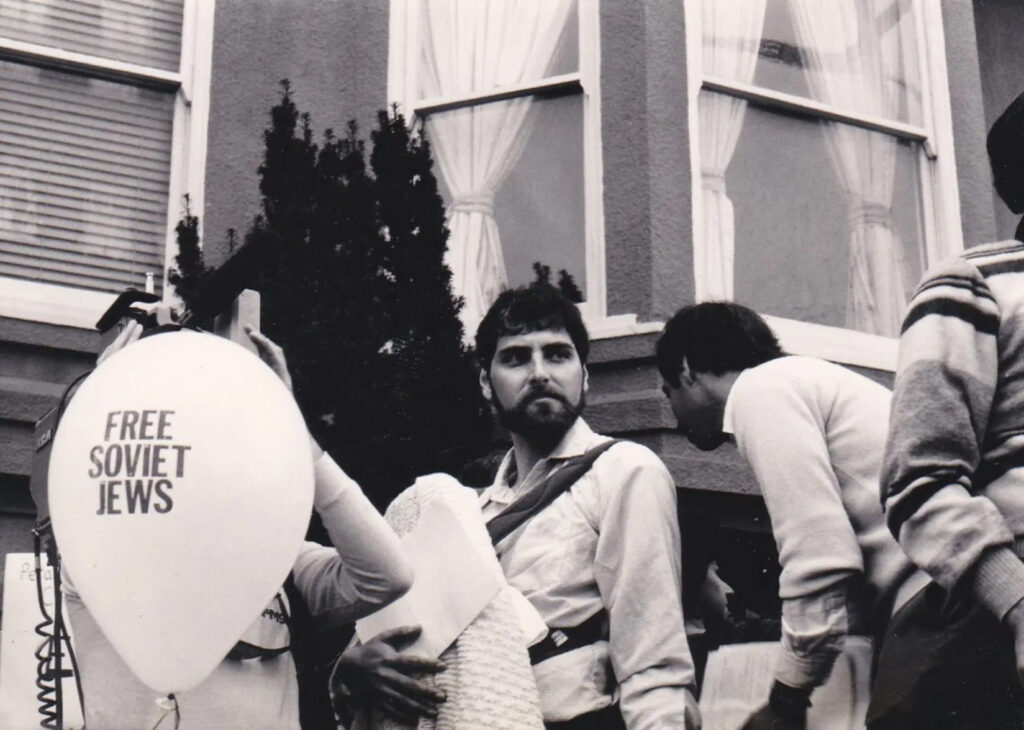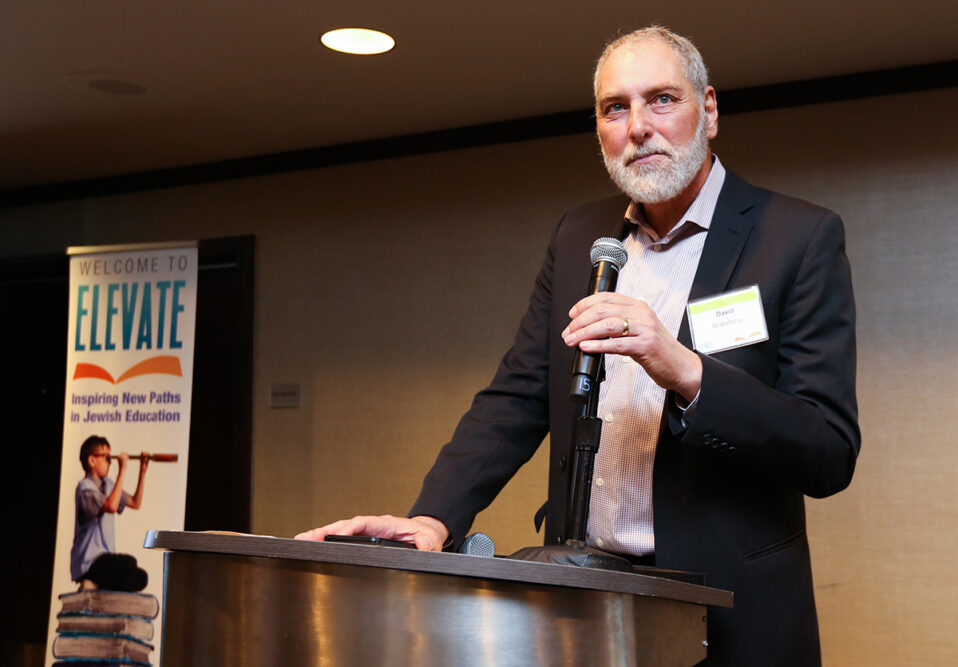Originally published in J. Jewish News of Northern California – May 28, 2020
Around the time David Waksberg became CEO of the Bureau of Jewish Education 13 years ago, he had a heart-to-heart with a colleague. And not just any old colleague. He called former Soviet Jewish refusenik Natan Sharansky.
“I said to him that I had gotten involved in the Soviet Jewry movement because that’s what I was called to do then to support my people,” said Waksberg, former executive director of the Bay Area Council for Soviet Jews, who came to know Sharansky during that time. “I now felt it was education that most resonated for me, because I felt strongly that if we don’t know who we are and what it means to be Jewish, then the whole enterprise falls apart.”
Since then Waksberg, 63, has led the San Francisco-based organization through much growth, reflected in its name change to Jewish LearningWorks in 2015. Now Waksberg is set to retire. He will step down June 30, with Dana Sheanin, currently chief strategy officer, taking on the top leadership role. Waksberg plans on devoting retirement time to writing, as well as political and environmental activism.
It’s a bittersweet step for all involved. Jewish LearningWorks board chair Julie Dorsey calls Waksberg “the consummate collaborator. He’s always willing to listen to someone’s opinion, solicit advice, take what they say seriously and make decisions based on a lot of input. He honors and respects that.”
Waksberg takes pride in what Jewish LearningWorks has achieved in increasing Jewish literacy. He says when he started at the organization, traditional Hebrew school programs had been getting a bad rap, so one of his first initiatives was to work more closely with synagogue schools, helping them “overhaul and examine how they were approaching education, and bring in some new ideas.”

Those ideas included expanded family learning programs, such as the Shabbat Lab for parents, and establishing greater opportunities for kids with special needs, such as the Include Initiative, which sought policy changes at synagogues and day schools to make all learners feel welcome.
“I was attracted to the idea of supporting educators and helping them develop strategies, tools and curricula that were better suited for the challenges of today,” he says. “The mission hasn’t really changed. The original mission was to advance Jewish learning. What changed is how we understand how to do that.”
Waksberg has had three careers in his life, two of them in the Jewish world. But he offers up a truly “off-the-wall” explanation for his attraction to Jewish communal work.
“When I was a kid, I would visit my grandparents in the Bronx,” the Connecticut native recalls. “They had a big photograph on the bedroom wall of [their] families in Poland, taken in the 1920s.”
In that black-and-white image, his relatives are holding up photos of the younger family members who had left for America and Palestine. One of them was Waksberg’s own father, then just a baby. Waksberg was told that all of the family members who stayed in Poland were later murdered by Hitler.
Also on his grandmother’s kitchen wall hung a wooden plaque with engraved Hebrew writing that read: “What have you done today on behalf of your people and your land?” That, too, made an impression, Waksberg says. Looking back, “I understood that my career was the result of a conversation between the wall in my grandparents’ bedroom and the wall in the kitchen.”
As a teen, he became an activist on behalf of Soviet Jewry, a movement that he says “took over my life.” In 1981 he moved to the Bay Area, a center for that struggle, and a year later became executive director of the Bay Area Council for Soviet Jews. He held the post until 1995.

“David succeeded because of his dedication, his 24/7 work ethic and his emotional intelligence,” remembers Morey Schapira, president of the organization and a leader in the international Soviet Jewry movement. “He is an excellent communicator and a skilled negotiator. David worked quietly and effectively. His work was respected.”
In 1995 Waksberg started working for a tech startup that later was acquired by Descartes Systems. He rose to become vice president of product strategy. Looking back on his 12 years there, Waksberg says, “It was a good job, but I felt a piece of my soul was dying every day making the world safe for logistics and supply chain. I decided I wanted to return to nonprofit work, something that would resonate with my deepest values.”
So, in 2007, he took the helm of Jewish LearningWorks. While he is proud of the innovation and creativity he helped foster at the agency, he is equally pleased with the work done at the Bay Area’s many Jewish day schools, institutions he values highly.
“I’m a big believer in day schools,” he says. “Supporting them is important for the health of our community. They need to grow and evolve.”
Retirement means more time with family, including his wife, Ellen Bob Waksberg, and his three adult children. He says he leaves Jewish LearningWorks in good shape, both in terms of finances and leadership. “Dana is extremely talented and very well positioned to do a great job,” he says. “She’ll be great. The organization won’t miss a beat.”
He may be retiring from work, but not from Jewish learning. In fact, he says it is the very thing that helped shape and inform his life.
“For me, Jewish thought, tradition and wisdom from the last few thousand years really helped me be a better husband, father, son, brother, friend, neighbor and citizen. All this wisdom contributed to what some would call happiness. It helped me lead a good life. And that’s the point of it all.”
To view this article on the j. Weekly website, click here.



